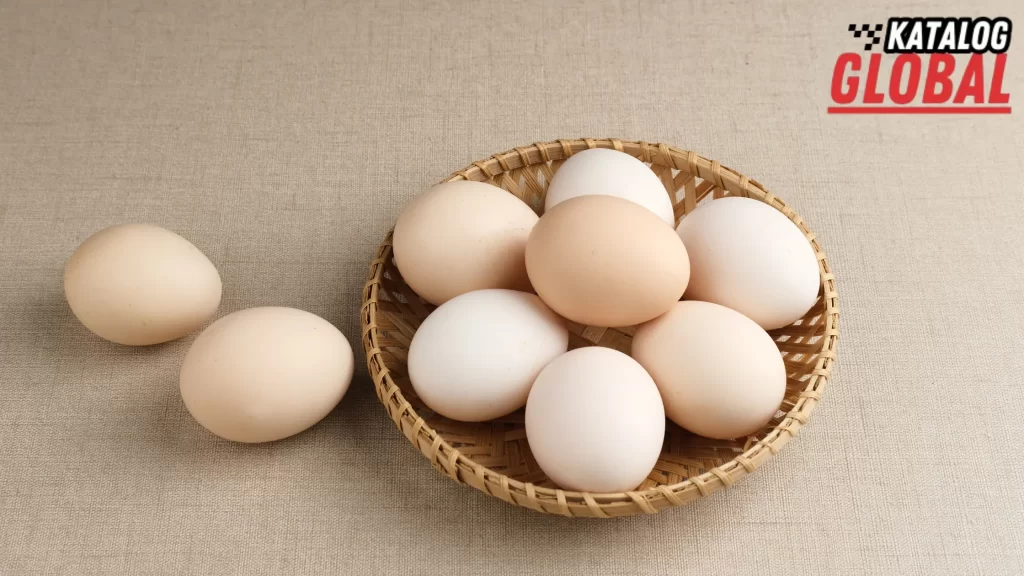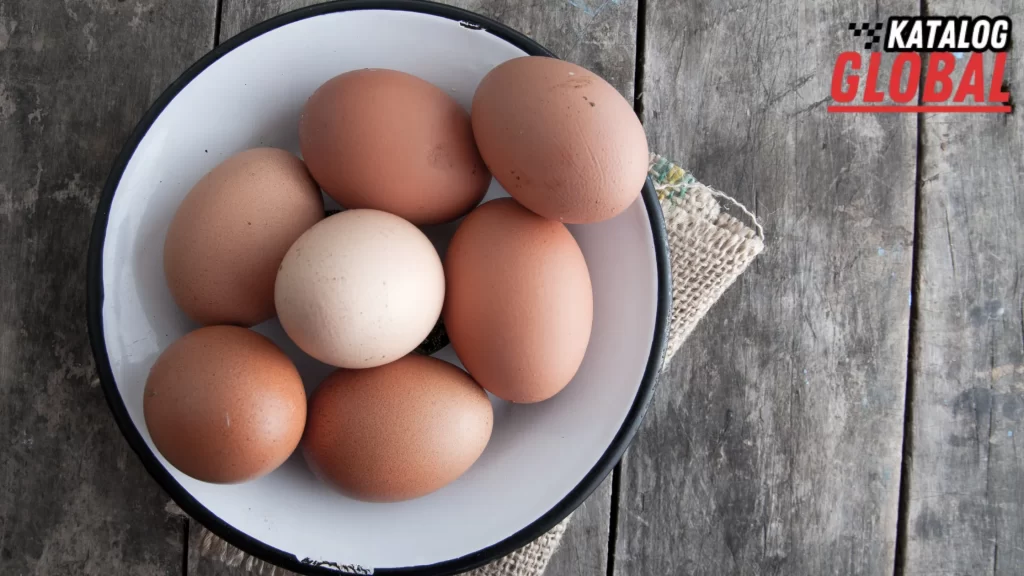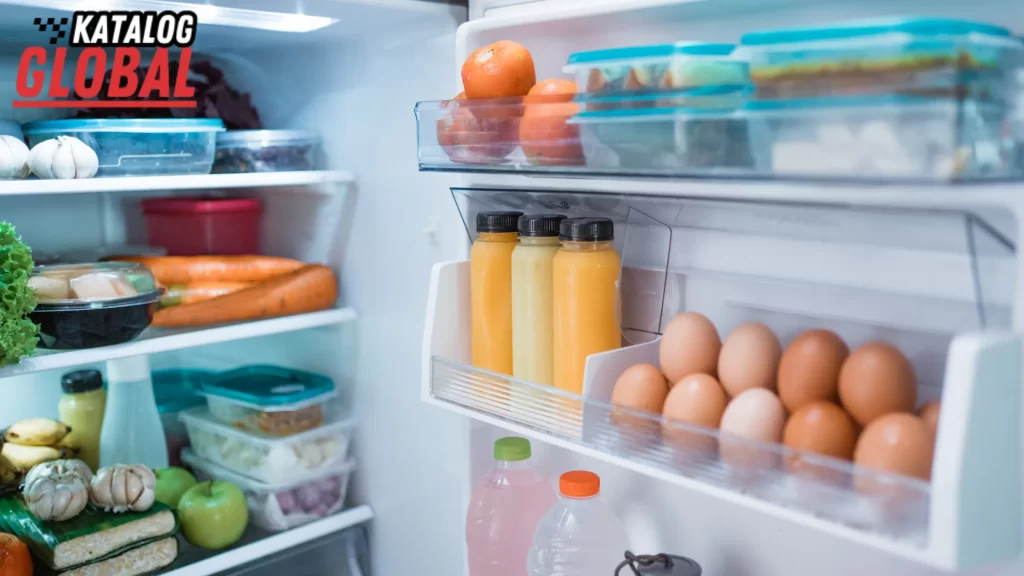Table of Contents
Are you wondering, “How long do farm fresh eggs last?” If you’re a fan of the fresh taste and nutritional benefits of farm-fresh eggs, it’s important to know how to keep them at their best. Unlike store-bought eggs, farm-fresh eggs often come directly from a local farm or your backyard, which means they have a longer shelf life. But how long do farm fresh eggs last, really? This ultimate guide will answer all your questions about farm fresh egg storage, shelf life, and how to make sure you’re always getting the freshest eggs possible.
What Makes Farm Fresh Eggs Different?

Farm-fresh eggs are special for several reasons. First, they are usually much fresher than eggs from the grocery store, which can sit in warehouses and store coolers for weeks before making their way to your kitchen. Farm fresh eggs often come straight from the chicken coop, meaning they still have their natural protective coating, called the bloom. This coating helps prevent bacteria from entering the egg and keeps them fresher longer.
The nutritional profile of farm-fresh eggs is often better, too. Eggs from free-range chickens that have access to fresh grass, bugs, and sunlight are richer in omega-3 fatty acids, vitamin D, and other nutrients compared to eggs from caged hens. In short, not only do farm fresh eggs taste better, but they’re also better for you.
Also Read: Why Does Red Food Dye Stain Bowls? Discover the Shocking Truth
How Long Do Farm Fresh Eggs Last Unrefrigerated?

One of the biggest perks of farm fresh eggs is that they can last up to two weeks without refrigeration, as long as the bloom is intact. When eggs are laid, they have this natural coating, which acts as a barrier against bacteria and other contaminants. If you store your farm-fresh eggs at room temperature, they’ll be fine for a couple of weeks. Make sure to keep them in a cool, dry place, away from direct sunlight and heat, which can accelerate spoilage.
It’s important to note that the room temperature storage of eggs is safe and common in many countries outside the U.S., where eggs are often washed and then refrigerated. In the U.S., store-bought eggs are usually washed and, therefore, must be refrigerated immediately to stay fresh.
How Long Do Farm Fresh Eggs Last in the Fridge?

If you want to extend the shelf life of your farm-fresh eggs even further, you should refrigerate them. Fresh eggs from farms can last up to three months when stored in the fridge. This is due to the cool temperature slowing down the aging process and reducing the risk of bacterial growth.
When refrigerating eggs, it’s best to store them in their carton or a sealed container. This helps protect them from absorbing odors from other foods in your fridge. Eggs are porous, and they can pick up strong smells, which may alter their taste. Keep your eggs in the main part of the fridge, not on the door, where the temperature fluctuates every time the refrigerator is opened.
Also Read: Chamorro Food Secrets: Discover the Flavors of Guam’s Hidden Delights
Signs That Your Farm Fresh Eggs Are No Longer Fresh

It can be hard to tell if eggs are still fresh just by looking at them, but there are a few easy ways to check.
The most popular method is the float test. To do this, fill a bowl with water and gently place the egg in it. If the egg sinks and lays flat on the bottom, it’s still fresh. If it stands upright, it’s older but still safe to eat. However, if the egg floats to the surface, it hasn’t gone well and should be discarded.
Another method is the sniff test. Crack the egg open and give it a quick sniff. A fresh egg won’t have much of a smell at all. If the egg smells sulfuric or rotten, it’s definitely no longer safe to eat. Lastly, look at the yolk and whites—a fresh egg will have a firm yolk and thick egg whites. If the yolk is flat and the whites are runny, the egg is probably past its prime, though it may still be safe to cook.
Storing Eggs for Longer: Can You Freeze Farm Fresh Eggs?
Yes, you can freeze farm-fresh eggs! Freezing is a great option if you have an abundance of eggs and want to preserve them for later use. Freezing eggs is simple and can keep them fresh for up to a year.
To freeze eggs, first, crack them open and lightly whisk them to blend the yolk and whites. This prevents the yolk from getting too thick during freezing. Pour the mixture into an ice cube tray or freezer-safe container. Once frozen, transfer the egg cubes or portions into a freezer bag, label them with the date, and store them for future use.
When you’re ready to use your frozen eggs, just thaw them in the fridge overnight. You can use them for baking, scrambled eggs, or any dish that calls for eggs. Frozen eggs are especially useful for cooking or baking, although they won’t work as well for recipes that require raw eggs, like meringues.
Best Practices for Storing Farm Fresh Eggs
Maximizing the freshness of farm fresh eggs comes down to proper storage. Here are some tips to keep your eggs fresh as long as possible:
- Store Eggs Pointy-End Down: The larger end of the egg contains an air pocket, and storing them pointy-end down helps keep the yolk centered, preserving the quality.
- Don’t Wash the Eggs Until You’re Ready to Use Them: Washing eggs removes the bloom and can lead to faster spoilage. If your eggs are dirty, it’s best to dry-brush off any dirt and only wash them right before use.
- Refrigerate for Long-Term Storage: While it’s perfectly fine to leave your eggs out for up to two weeks, refrigeration will keep them fresh for months.
These simple tips will help ensure that you always have fresh, delicious eggs ready for any meal.
How to Maximize the Freshness of Farm-Fresh Eggs
The key to enjoying fresh eggs longer is to create the right conditions for storage. First, always handle eggs gently to avoid cracking them, as cracks can let in bacteria. If you gather eggs from your hens, it’s important to collect them daily and store them promptly.
If you’re storing a lot of eggs, it’s helpful to label them with the date you collected them so you know which ones to use first. Even in the fridge, eggs can absorb strong odors from foods like onions or garlic, so keeping them in a closed carton or container is a good idea.
The Benefits of Consuming Farm Fresh Eggs
There are plenty of reasons to love farm fresh eggs. Not only do they taste better, but they’re also better for your health. Chickens that are free to roam and eat a varied diet lay eggs that are packed with nutrients, including higher levels of omega-3 fatty acids and vitamins A and E. These eggs are a great source of high-quality protein and can help with everything from muscle repair to maintaining healthy hair and skin.
Consuming farm-fresh eggs also supports sustainable, humane farming practices. When you buy from local farmers or raise your chickens, you’re ensuring that your eggs come from happy, well-cared-for hens. Plus, supporting local farmers strengthens the community and encourages environmentally friendly practices.
Also Read: How Long Do Farm Fresh Eggs Last? Ultimate Guide Here
How to Support Local Farmers and Get the Freshest Eggs
The best way to ensure you’re getting the freshest possible eggs is to buy directly from local farmers. Farmers’ markets are a great place to find fresh eggs from high-quality farms, and you can often talk to the farmers to learn more about their practices and how they care for their chickens. Some farmers even offer egg delivery services, so you can get fresh eggs delivered to your door on a regular basis.
By purchasing farm-fresh eggs, you’re also contributing to a more sustainable food system. You’re helping small-scale farmers stay in business and encouraging practices that are better for the environment, animals, and your health.




